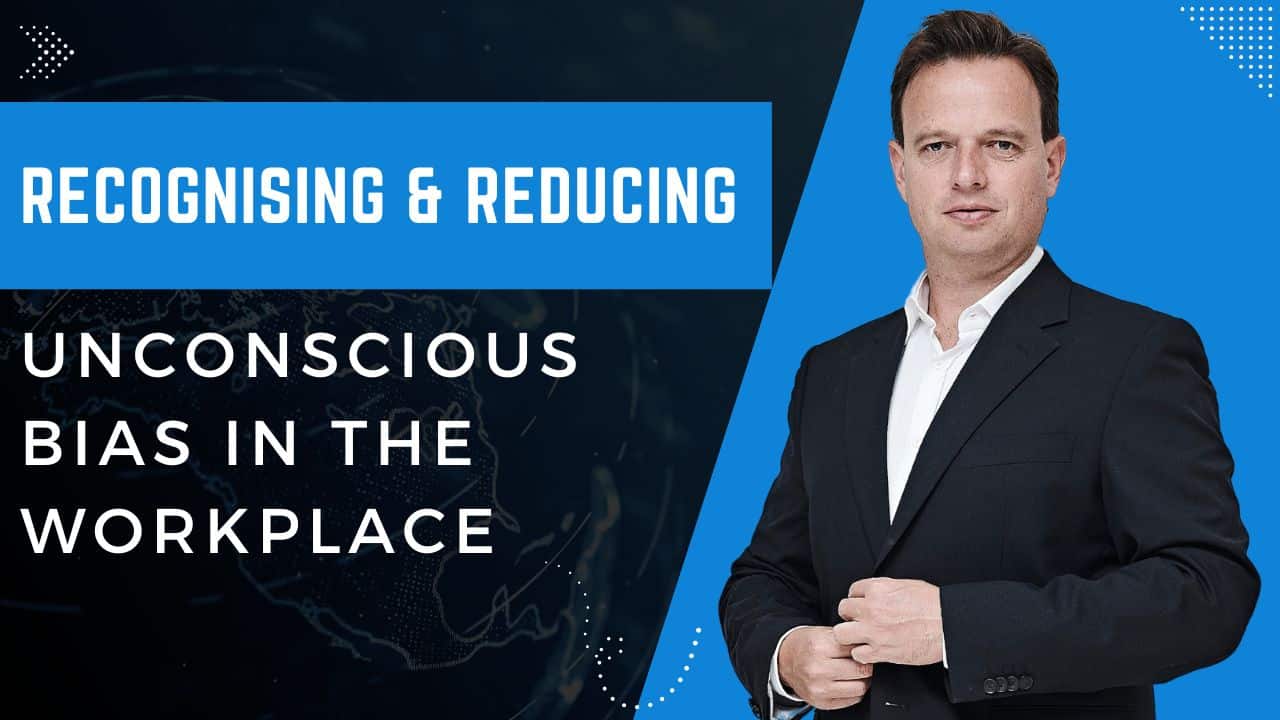
Is your workplace truly fair, or just seemingly fair?
Unconscious bias affects everything—from who gets hired to who gets heard in meetings.
If your organisation isn’t actively addressing bias, it’s likely reinforcing it.
Unconscious bias shapes the way we hire, promote, and interact at work—often without us realising it.
This workshop will help you recognise where bias exists and what you can do about it.
Why Unconscious Bias Matters
Bias isn’t just a social issue—it affects career growth, workplace culture, and business success.
Left unchecked, it limits opportunities, stifles innovation, and creates environments where only certain voices are heard.
Recognising and addressing bias creates fairer, stronger, and more inclusive teams.
Many people assume that being “fair” is enough.
However, unconscious bias operates below awareness, meaning good intentions alone won’t fix it.
Without structured processes and self-reflection, even the most inclusive workplaces can unintentionally reinforce bias.
“To not be biased is to not be human. Failing to admit your bias makes you part of the problem.” Howard J. Ross
Howard is a lifelong social justice advocate and is considered one of the world's seminal thought leaders in identifying and addressing unconscious bias.
Diversity isn’t the challenge—unconscious bias stops diversity from thriving.
The real work isn’t just in hiring diverse teams; it’s in creating systems that ensure everyone has an equal chance to succeed.
What Participants Will Gain from This Workshop
By attending this workshop, participants will:
- Identify your own unconscious biases and understand how they shape workplace decisions.
- Gain practical tools to reduce bias in hiring, promotions, and team collaboration.
- Develop structured decision-making approaches that lead to fairer, more inclusive outcomes.
- Improve communication and leadership skills by fostering a bias-aware mindset.
- Create a Master List of actions your organisation can take to address bias at a systemic level.
- Leave with a personal action plan to implement real change in your workplace.
This workshop uses insights contained in the bestselling book Biased by Jennifer Eberhardt.
Let’s get into it…
Recognising & Reducing Unconscious Bias in the Workplace
Duration: 2.5 hours
Overview: This session helps teams identify and address unconscious bias in decision-making, collaboration, and workplace culture. It is interactive, fostering self-awareness and actionable strategies for reducing bias.
Workshop Objectives
- Understand unconscious bias and its impact.
- Identify personal and organisational biases.
- Develop strategies to mitigate bias in everyday work.
Materials Needed
- Slide deck
- Flipcharts or whiteboard
- Markers
- Printed case studies (for Step 3)
- Printed Workplace Decision Scenarios (for Step 4)
- Bias awareness self-assessment sheets
- Laptop and projector (if using slides or videos)
Workshop Agenda
1. Opening & Icebreaker (15 min)
Facilitator Introduction: Explain the purpose of the workshop.
Activity – Implicit Associations: Ask participants to quickly associate words with images (e.g., leader, success, criminal, intelligence) and reflect on their instinctive responses.
2. Understanding Unconscious Bias (25 min)
Brief Presentation: Define unconscious bias, using examples from Biased (e.g., biases in policing, hiring, and education).
Discussion Questions:
- How might bias show up in our organisation?
- Can you think of a time when bias influenced a decision at work?
3. Case Study Analysis (30 min)
Scenario Groups: Provide real-world case studies (or organisation-specific scenarios). Examples:
- A hiring panel prefers candidates with similar backgrounds.
- A manager assumes a quiet team member is disengaged rather than introverted.
- Customer interactions are influenced by unconscious stereotypes.
Discussion: Groups identify biases and propose ways to mitigate them.
4. Bias in Decision-Making (25 min)
Interactive Activity – Decision Walk:
- Present a workplace decision (e.g., promotion, team assignment).
- Ask participants to role-play decision-makers and spot where bias could arise.
- Debrief: What patterns emerged? How can we reduce bias in decision-making?
5. Strategies for Reducing Bias (20 min)
Developing Organisational Commitments:
- Introduce bias-reduction strategies (e.g., structured decision-making, diverse interview panels, active bystander techniques).
- In small groups, brainstorm three actions the organisation can take.
- Come back together and compile a Master List.
6. Reflection & Closing (20 min)
Reflection Activity:
- Each participant writes down one bias they now recognise in themselves.
- Create a personal action plan to challenge this bias in their daily work.
Group Sharing:
- Volunteers share their commitments, reinforcing accountability.
Final Discussion:
- What is one insight you’re taking away from this session?
- How can we hold ourselves accountable?
Facilitation Tips
- Encourage openness but create a psychologically safe space for discussion.
- Redirect defensiveness by focusing on systems rather than individuals.
- Use real-life examples relevant to your organisation to make the workshop practical.
This workshop helps organisations move beyond awareness to actively reduce bias in their workplace culture.
Conclusion
By using this workshop, you’ll never have to wonder if unconscious bias is quietly shaping your workplace decisions.
Instead, it becomes a simple process of recognising bias, applying structured decision-making, and creating a culture where fairness and inclusion drive success.
Well, that’s it for today. I hope you enjoyed it.
See you next week.

